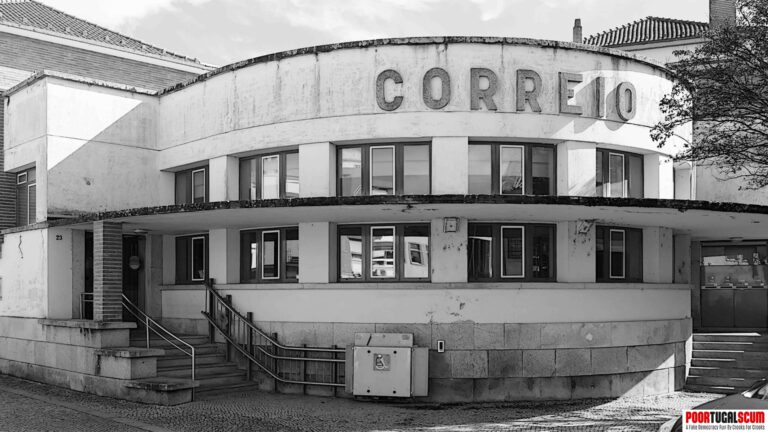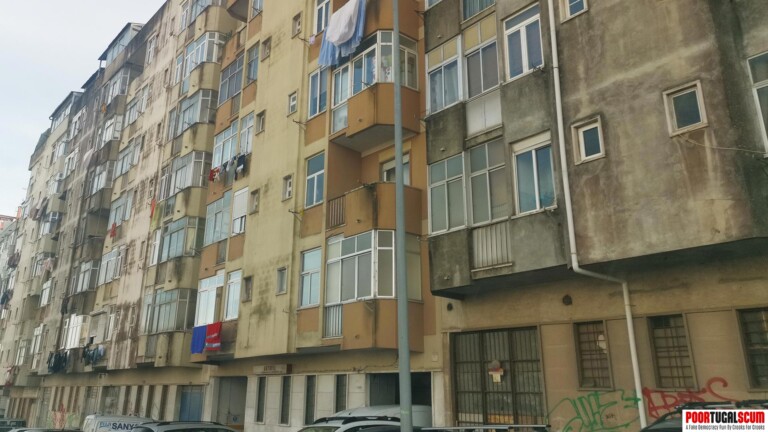Portugal only gives the European Union headaches. This time they have decided to open the doors of the Schengen area to any citizen of the CPLP (Community of Portuguese-speaking Countries), but the problem is that it is being done arbitrarily, without rules and without any minimum acceptable requirement other than paying 15 euros, for an almost “free” access to the common EU Schengen area.
This decision, as is unfortunately the norm in Portugal, has been taken in total disregard of the most basic rules and foundations of Europe showing an enormous disrespect for the other European countries that make up the Schengen area.
In addition, these immigrants are already being deceived by the Portuguese State (what a surprise), because they are left with the idea that they automatically acquire the right to move and settle in any EU country, which is a tremendous lie.
Of course, I am not against immigration, as long as it is done with well-defined and demanding rules, and in full accordance with what has been agreed with European partners. Immigration must be an added value for all concerned. What Portugal has done does not respect the European agreements, but it also does not respect the emigrants.
The following article is a translation (mostly MT). You can find the link to the original website at the end of it.
151 thousand already granted. EU opens proceedings against CPLP visas in Portugal
The European Commission understands that the CPLP residence permit and the work search visa are not “compliant” with European rules.
According to the SEF, 151,575 CPLP visas have been granted to date and, according to the MNE, 14,500 job search visas.
The European Commission has initiated an “infringement procedure” against Portugal over new residency permits for citizens of the Community of Portuguese Speaking Countries (CPLP), launched last March.
The Commission “urges Portugal to harmonize the provisions” of these visas “with European Union (EU) law, considering that “Portugal has not complied with its obligations under regulation 1030/2002, which establishes a uniform model for the residence permit for nationals of third countries”.
In the notification sent to the Secretariat of State for European Affairs, this body considers that the “residence permit does not comply with the model established” in the European regulation.
Furthermore, it is added, “both residence permits and long-term visas for job search purposes for nationals of CPLP States do not allow their holders to travel within the Schengen area”.
“Further proof that easy immigration schemes only lead to disaster. We are talking about thousands of people, residents of our country”, commented the specialist in Migration Law, Ana Rita Gil, on her Facebook page.
She explained to DN that “the problem turns out to be merely formal, but it has a lot of material importance: there is a single model of residence visa in the EU.
The CPLP does not respect this model. It is a paper, literally. Now, this was not recognized by the other Schengen States – nor the work search visa.
Therefore, these people could not take advantage of the right to travel for up to three months within the Schengen area, recognized for any legal resident in the Member States”.
Another expert on these matters, who spoke on condition of anonymity because she is in a judicial capacity, highlighted to DN that “the Portuguese government created yet another exceptional regime within the Foreigners Law,
in which around two dozen community directives are transposed, in complete contradiction with them. It did not even communicate to the EU the model of document that it started to issue, making it mandatory to inform partners of all documents in these areas.
As expected, they began to circulate in the thousands in the EU and the other States detected it, questioning Portugal. This notification from the Commission is the result of that.
There have been relocations carried out by countless citizens in these conditions, away from other European countries”.
According to the SEF, these visas have so far regularized 151,575 CPLP citizens (113 thousand in the first two months). They last for one year, renewable for two successive periods of two years and can be granted automatically, without the need for in-person travel.
Regarding work search visas, requested at Portuguese consulates, an official source from the Ministry of Foreign Affairs reveals to DN that, as of September 19th (last count made) 14,500 of these titles had been granted, with Brazilian nationals leading the way, followed by Cape Verdeans and São Toméans.
The residence permit for CPLP immigrants costs 15 euros and making this document available in an electronic format generally takes 72 hours.
In addition to Portugal, CPLP includes Angola, Brazil, Cape Verde, Guinea-Bissau, Equatorial Guinea, Mozambique, São Tomé and Príncipe and Timor-Leste.
More related news
Portugal will automatically grant residence permits to CPLP immigrants
The Government justifies the granting of a residence permit to CPLP citizens, which will initially last for one year. They cite the new regime for entry of immigrants into Portugal, in force since November 2022 and which allows CPLP immigrants to enter have a visa facilitation regime in the country
Portugal will automatically grant immigrants from the Community of Portuguese Speaking Countries (CPLP) a residence permit lasting one year, according to a Government order.
( … )
On Saturday, the Minister of Internal Administration had already stated that immigrants from CPLP countries would benefit from a “protection status of up to one year,” equivalent to that of citizens who entered the country to escape the war in Ukraine, in which the request for temporary protection is done through an online platform.
José Luís Carneiro also said that this model for citizens of CPLP countries will allow them “to benefit from a protection status for up to one year that allows direct access to social security, health, and tax numbers.”
This process will make it possible to regularize the situation of thousands of CPLP immigrants, especially Brazilians, who expressed interest, between 2021 and 2022, in obtaining a residency permit in Portugal.
( … )
More related news
Marcelo rejects that CPLP visas are incompatible with the EU
The President of the Republic commented on the fact that, as DN reported, the European Commission opened proceedings against Portugal because of the mobility agreement with Portuguese-speaking countries.
The President of the Republic rejected on Sunday the existence of incompatibility between the European and Portuguese visa regimes, after the European Commission opened a procedure against Portugal because of the mobility agreement with Portuguese-speaking countries.
“Portugal has been explaining for many years why there is no incompatibility between the [visa] regime adopted in relation to the CPLP and the European, community regime. We have already explained why there is no contradiction, there is no clash. So far this has been accepted and we believe that we will assert our point of view”, said Marcelo Rebelo de Sousa.
( … )









